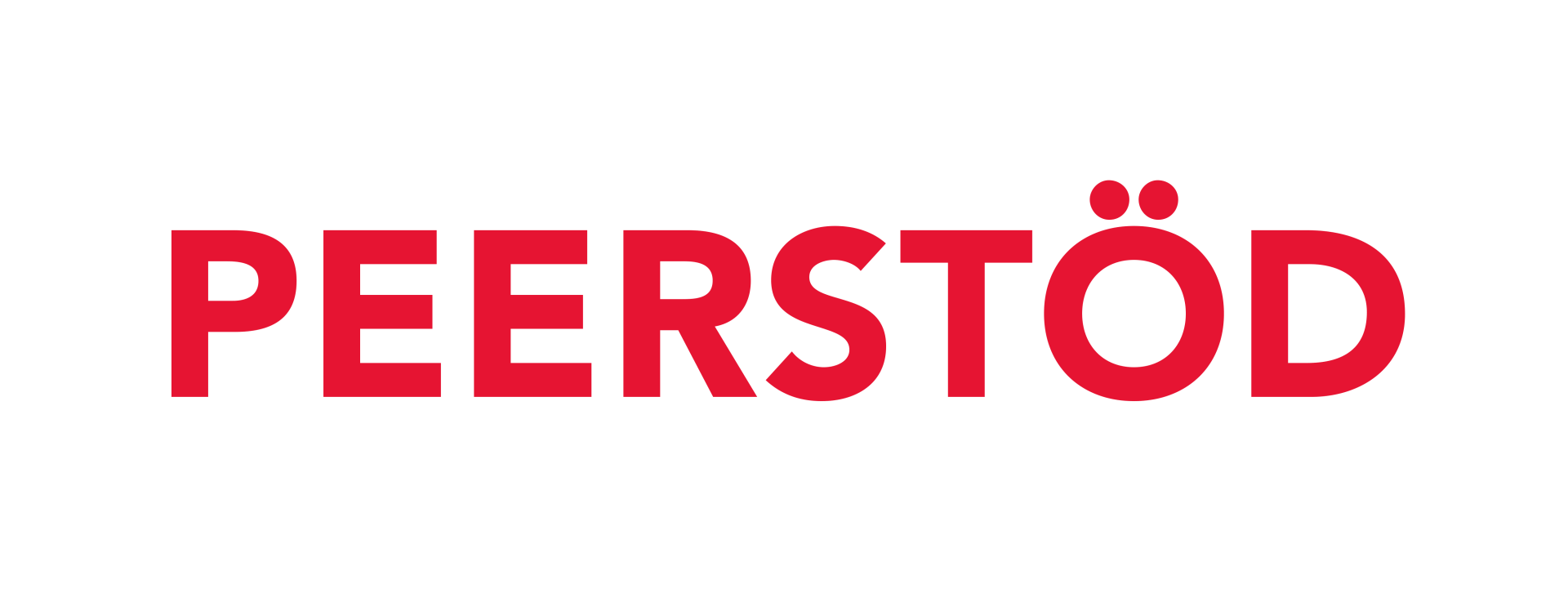Last updated March 2024
For people living with HIV, there are several ways to become a parent. You or a partner can become pregnant through sex or assisted reproduction, or you can have a child through adoption or a surrogacy arrangement abroad. However, in some cases, HIV can be an obstacle.
Posithiva Gruppen runs the 3P – Positive Pregnancy Peers project, which offers peer support to people who are currently pregnant or thinking of becoming pregnant. The support is provided by people living with HIV who have been pregnant and given birth themselves. Read more about 3P.
On this page you will find information about:
- Pregnancy through sex
- Assisted reproduction
- During pregnancy
- During childbirth
- After childbirth
- Breastfeeding and infant formula
- Surrogates
- International adoption
- Information for the preschool/school
Pregnancy through sex
People with well-adjusted HIV treatment can now have the condom requirement formally waived by their HIV doctor, meaning that there are no barriers to having children through sexual intercourse when one or both partners live with HIV. Even when condoms for sex were required for all people living with HIV, many heterosexual couples were advised to have unprotected sex to get pregnant.
Assisted reproduction
Assisted reproduction includes insemination and IVF (in vitro fertilisation). According to a survey conducted by the Swedish Public Health Agency in 2018, there were no IVF clinics or hospitals offering assisted reproduction to women living with HIV. However, assisted reproduction is now available through a research study at Karolinska University Hospital Huddinge. You can read more about the study and who can apply to participate on the hospital’s website (in Swedish). The study also allows for freezing gametes (sperm and egg cells).
During pregnancy
All pregnant people attend regular check-ups during pregnancy. The routines for whether or not to go to specialist maternity care when living with HIV vary among different regions in Sweden. If you live in the Stockholm region, then you go to the specialist maternity care at Karolinska University Hospital Huddinge, while if you live in another part of the country, in most cases, you will go for check-ups at the “regular” maternity care/midwife clinic. During pregnancy, extra samples are taken at your infection clinic.
Many insurance companies have special rules for insuring a child born to a parent living with HIV, even if the child does not have HIV. To avoid leaving the newborn child uninsured, in some cases, it may be easier to take out pregnancy insurance (an insurance policy that is valid during pregnancy). Feel free to ask your midwife or Posithiva Gruppen about this. Posithiva Gruppen has compiled a list of the terms and conditions of pregnancy and child insurance policies offered by different insurance companies. Please contact us to receive access to the compilation.
During childbirth
If your treatment is well-adjusted, then a vaginal delivery is recommended. If you have more than 150 viral copies per millilitre of blood, then a caesarean section is recommended. The Reference Group for Antiviral Therapy (RAV) has developed guidelines for treatment and care during pregnancy and childbirth when living with HIV. Read the guidelines (PDF) (in Swedish). See Section 2.6 of the Guidelines for more information about childbirth routines.
After childbirth
Babies born to people living with HIV should receive a prophylaxis (Zidovudine) immediately after birth. The prophylaxis treatment continues for four weeks. Pregnant persons can collect the prophylactic treatment from a pharmacy before the birth. The child is followed-up regularly to check that they have not contracted HIV. Testing for HIV RNA is done at zero to three days after birth, at six weeks of age and at approximately four months of age. When the child is around two years old, an antibody test is done.
It is a good idea to take out child insurance. Posithiva Gruppen has compiled a list of the terms and conditions for child insurance policies offered by different insurance companies. Please contact us to receive access to the compilation.
Breastfeeding and infant formula
The Reference Group for Anti-viral Therapy (RAV) treatment recommendation for pregnancy (from 2017) and the infection prevention sheet for HIV (last updated in July 2019) state that women with HIV should not breastfeed. This is true whether or not HIV treatment is well-adjusted. After giving birth, you can get help to stop breastfeeding, for example by being prescribed Dostinex.
In some other countries, healthcare services support HIV-positive mothers who choose to breastfeed their babies even though breastfeeding is not recommended. This is in accordance with European guidelines published by European AIDS Clinical Society (EACS) (see page 18 of the EACS Guidelines (PDF)). Posithiva Gruppen has developed information about safer breastfeeding for people with HIV who choose to breastfeed their babies despite recommendations not to do so. Providing such information is an example of harm reduction.
Read Posithiva Gruppen’s information on HIV and breastfeeding (in Swedish).
In spring 2021, Posithiva Gruppen’s Knowledge Network for Women Living with HIV conducted a national survey of access to formula, information about breastfeeding and donated breast milk in Sweden’s 21 regions. At the time of the survey, 3 out of 21 regions offered financial compensation or provided breast milk substitutes to mothers with HIV and their babies. In Stockholm and Gotland, breastmilk substitution itself is distributed, while in Uppsala, financial compensation for breastmilk substitution is offered. Since the survey was conducted, Umeå has also started distributing breast milk substitutes.
No region offered donated breast milk to babies of mothers with HIV. Most regions responded that donated breast milk can only be offered to premature and critically ill babies. The four regions of Västmanland, Skåne, Västra Götaland and Gävleborg were slightly more open to offering donated breast milk to babies of mothers with HIV ‘in theory’ or ‘to some extent’ (e.g., in maternity wards), according to the survey.
Surrogates
It is not illegal to have a child through surrogacy, but the process is legally insecure since Sweden lacks legislation on the matter. The person who gives birth to the child will automatically be considered a parent. In addition, it is not possible to obtain assisted reproduction for surrogacy at clinics in Sweden. This applies to everyone regardless of their HIV status. However, there are several Swedish companies that offer surrogacy arrangements abroad. Many of these are aimed at people living with HIV. Some of the companies may require those wishing to become parents to undergo and/or pay for certain tests or procedures such as sperm washing (as communicated with companies in 2021).
International adoption
The family court in the municipality where you live is responsible for giving consent to people who want to become adoptive parents. As part of the adoption process, a so-called suitability assessment is carried out which includes various aspects defined by the Swedish Social Services Act. One such aspect is the health status, but neither the law nor the preparatory legal work specifies the specific diseases that should be taken into account. Thus, living with HIV is not regulated in Swedish law in terms of eligibility to adopt. However, in international adoption, some partner countries may not accept adoptive parents living with HIV, even if consent has been obtained from the municipality.
If you have specific questions about adoption, then you can contact the Family Law and Parental Support Authority.
Information for the preschool/school
Parents or guardians are not obliged to inform the head teacher or other staff at the preschool or school about their child’s HIV status. If you think it is beneficial for the child to have someone at school or preschool know that the child is living with HIV, then you can choose to inform them.
- Within HIV care
- Support and counselling
- For healthcare visits and treatments outside of HIV care
- For people who are or want to become parents
- For children and adolescents
- During studies and at work
- For people with sickness compensation (formerly known as early retirement)
- For people who do not have a residence permit in Sweden
- When travelling abroad
- When having sex
- When taking out insurance
- HIV related to laws and crimes








